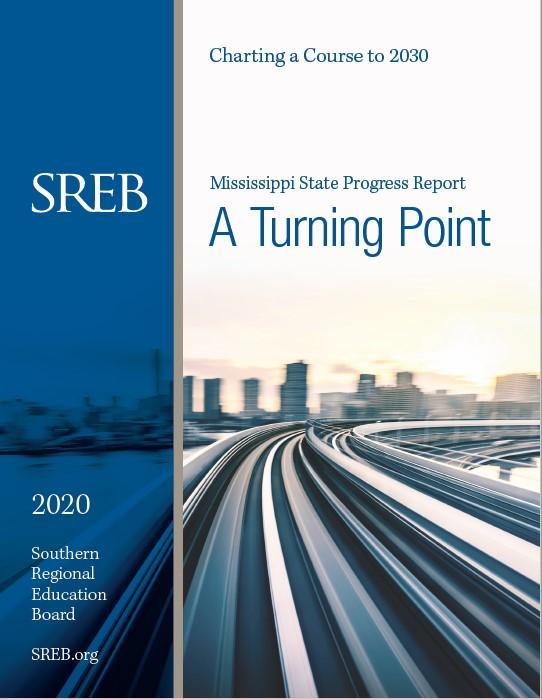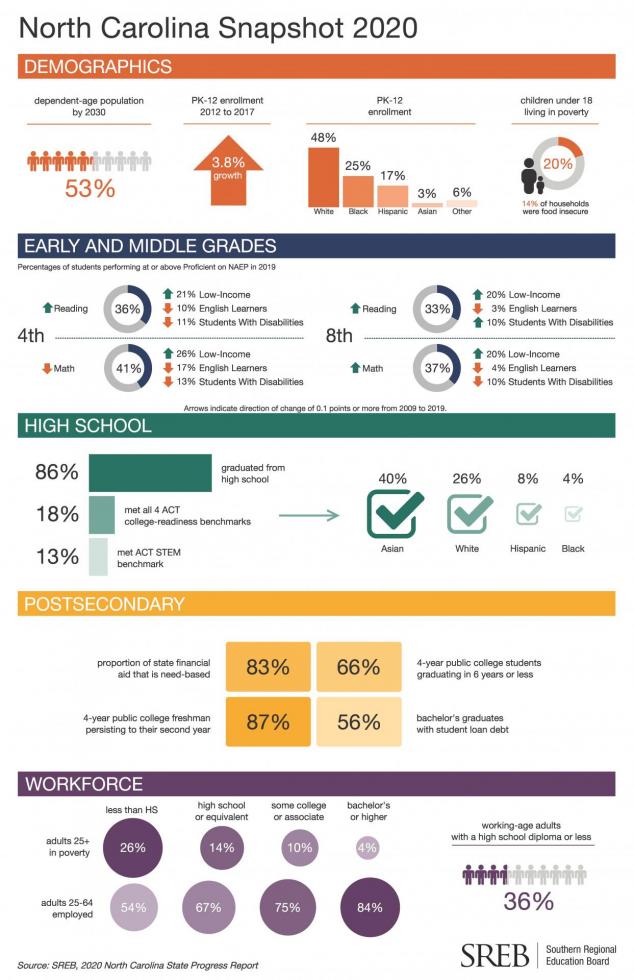Progress on Education, Challenges Ahead
2020 State Progress Reports: A Turning Point
States are making advancements in education but need to focus more urgently on areas such as early reading and math to prepare more students for postsecondary education and success in the workplace, according to new reports from the Southern Regional Education Board.
The 2020 progress reports for each of the 16 SREB states detail student data on key measures from pre-K to college and the workforce, plus state-specific demographic and economic trends. The reports also detail how each state is implementing the kinds of policies recommended to move these measures forward.
“Education is at a turning point in every state across the South, and the COVID-19 pandemic has made it more urgent than ever to be sure each and every student has an equitable opportunity to succeed,” said SREB President Stephen L. Pruitt. “These reports help us focus on where we need to improve, and how.”
See Your State’s Report
2020 State Progress Reports: A Turning Point
To help policymakers see where their states stand and how they can improve, SREB monitors states on Challenge to Lead goals across all education levels. Progress reports for each of the 16 SREB states include state-level highlights and data.
Workforce: Education attainment level, employment rates, earnings and poverty by education level
 Postsecondary: Financial aid, tuition increases, graduation rates and degrees by race and ethnicity
Postsecondary: Financial aid, tuition increases, graduation rates and degrees by race and ethnicity
High School: Progression from 9th through 12th grade, graduation rates, ACT, SAT and Advanced Placement participation and results
Middle and Early Grades: Trends in 8th and 4th grade math and reading by income, race and ethnicity on NAEP, the Nation’s Report Card
Early Learning: Enrollment in publicly funded pre-K programs, standards of quality, teacher quality and kindergarten policies
Charting a Course to 2030: Challenges Ahead
Postsecondary credentials
Too many working-age adults in the SREB region do not have the credentials they need for success in the workplace. In 2017, 7.9 million adults in SREB states did not have a high school diploma, and another 17.2 million had a high school degree but no postsecondary education.
 Early and middle grades learning
Early and middle grades learning
Between 2009 and 2019, most SREB states did not increase early- and middle-grades achievement at the NAEP Basic level.
College preparation
Record percentages of the region’s students are graduating from high school on time, but too few are ready for college-level courses. In the median SREB state, 87% of the 2018 class graduated from high school on time. But only 19% of those who took the ACT met its four college-readiness benchmarks.
Access to quality pre-K
While some SREB states lead in pre-K availability and quality, many children in the South still do not have access to high-quality pre-K programs.
A nonprofit, nonpartisan interstate compact, SREB was created in 1948 by Southern governors and legislators who recognized the link between education and economic vitality. SREB states are Alabama, Arkansas, Delaware, Florida, Georgia, Kentucky, Louisiana, Maryland, Mississippi, North Carolina, Oklahoma, South Carolina, Tennessee, Texas, Virginia and West Virginia.

